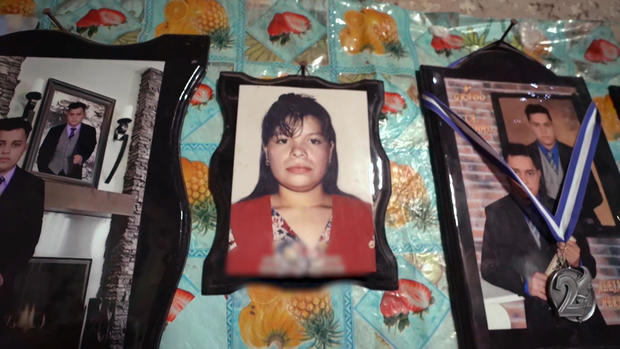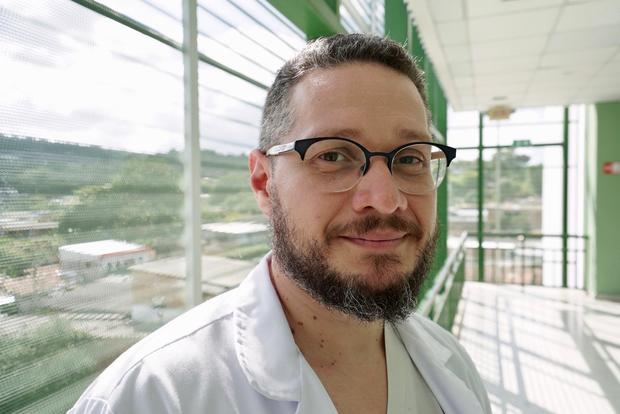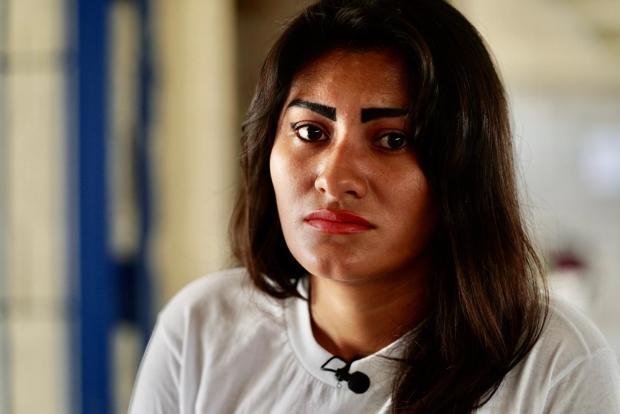
Audio By Carbonatix
Seven months pregnant, Manuela, a mother of two, said she miscarried at her modest home in rural El Salvador. But the police, and a judge, didn’t believe her. They charged and convicted her for aggravated homicide, sentencing her to 30 years in prison.
But Manuela only served two of those years. In 2010, she died alone in a hospital of Hodgkin’s lymphoma, a disease her lawyers say caused her to miscarry.
More than 140 women have been charged under El Salvador’s total ban on abortion since 1998, incarcerated for up to 35 years in some of the world’s most notorious prisons. Like Manuela, many say they never had an abortion, but instead claim that after suffering a miscarriage they were wrongfully convicted when their doctors accused them of intentionally terminating their pregnancies.

At a moment when Roe v. Wade appears more vulnerable than ever to legal challenges, El Salvador provides a glimpse of what the United States could look like if bans on the procedure are permitted.
For more than 20 years, El Salvador — a tiny Central American country struggling with brutal gang violence and a record-high homicide rate — has completely banned abortion, including in situations when the procedure could save the patient’s life. The total ban was lobbied for by the Roman Catholic Church, an institution that became particularly powerful in the country after its devastating civil war. In 1998, the church was successful in cementing the ban into El Salvador’s constitution, adding an amendment to say that “life begins at conception.”
“No one should act against a life once it has been conceived,” said Father Edwin Banos, a social media savvy millennial priest based in Metapan, El Salvador, who’s thrown public support behind the country’s anti-abortion laws. “A doctor will always want to save both lives,” Banos said. “The mother and the child.”
But Dr. Ronald Lopez, an OB-GYN based in San Salvador, says that’s not always possible and the ban has prevented him from saving the lives of some of his patients. Lopez recalled one patient, a woman who came to him with a heart disease that made her pregnancy a life-threatening condition.
“We couldn’t make the abortion, so the woman died about nine weeks later,” Lopez told CBS News during an interview from the maternity ward of San Salvador’s public hospital for women. “And the baby, too.”
Because of the ban, Lopez says his hands are tied. Performing an abortion, even if the procedure would save the patient’s life, can carry a prison sentence of up to 12 years, according to El Salvador’s penal code.

Doctors like Lopez are also responsible for reporting potential abortions, even though according to Lopez, it’s next to impossible to tell the difference between an abortion and a miscarriage in many cases. If a patient comes into a hospital with a miscarriage but a doctor suspects it was an abortion, the physician is required to call the National Police, who come to the hospital to investigate. Indeed, over half of the women jailed for abortion in El Salvador were first accused by their doctor, according to the Center for Reproductive Rights.
But that hasn’t stopped patients from seeking the procedure.
“Abortions are performed every day, in every country,” Lopez said. “Ban or no ban on abortion, it will be the same.”
An estimated 5,000 abortions happen illegally in El Salvador every year, the Center for Reproductive Rights estimates. While some are performed by sympathetic doctors trained to provide the procedure, many aren’t. The World Health Organization estimates about 11% of clandestine abortions cause the patient to die.
One doctor, who said he was discreetly trained to provide abortion services in medical school, told CBS News he feels compelled to do the illegal work to offer patients a safe option.
“[If] those of us who are technically trained don’t help, women will have to go elsewhere,” said the doctor, who requested anonymity given the nature of his work. “They will always seek solutions in the black market.”
Both El Salvador’s president, Nayib Bukele, and its attorney general, Raúl Melara, declined interview requests. José Apolonio Tobar Serrano, the country’s Attorney Solicitor of Human Rights, deflected questions asking if a total abortion ban was a violation of women’s human rights.
“As public officials we are not permitted to act beyond what is allowed by the Constitution,” Tobar said. “The rights of the person who will be born are the same as the rights of the person already born.”
Salvador’s abortion laws. Two years ago, the country’s lawmakers failed to pass legislation that would have carved out an exception for victims of rape and when the patient’s life was at risk. And only a constitutional amendment can remove the provision that was added in 1998.
But a lawsuit brought on behalf of Manuela’s family after her death may bring change. Next year, the Inter-American Court of Human Rights is expected to hear her case and if the international body sides with Manuela and her family, El Salvador could be barred from prosecuting women who say they miscarried, according to an attorney for the Center for Reproductive Rights, the law firm representing the family.
Speaking from her modest, rural home, Manuela’s mother said she was hopeful.
“These poor women need help,” she said. “I don’t want them to suffer like my daughter did. It’s the youth, the women, who need to fight.”
On a humid, overcast day in November, a delegation of U.S. lawmakers visited the women jailed for abortion at Izalco Prison in El Salvador, a detention facility in an area so dangerous that prisoners rarely receive visitors. The five politicians — all of whom support abortion rights but come from states that heavily restrict the procedure — teared up as the 14 women told their stories. Every woman at Izalco says they never had an abortion, but instead lost their child to a miscarriage.

As she left, Alabama State Representative Merika Coleman thought of her home. In 2019 Alabama passed the most restrictive abortion law in the United States, a near-total ban on the procedure with no exceptions for victims of rape or incest. Under the law, which is currently on hold due to court challenges, doctors could be punished by up to 99 years in prison for providing the procedure. The purpose of the law, its author says, is to provide a “direct attack” on the legal frameworks that currently protect access to abortion nationwide.
“If these types of laws continue to pass in our country, if the Supreme Court continues to be appointed with very conservative judges, if we don’t do something to protect Roe v. Wade in this in our country, things that are going on in El Salvador could actually happen in the United States,” Coleman said.
Latest Stories
-
Ghana is rising again – Mahama declares
4 hours -
Firefighters subdue blaze at Accra’s Tudu, officials warn of busy fire season ahead
5 hours -
New Year’s Luv FM Family Party in the park ends in grand style at Rattray park
5 hours -
Mahama targets digital schools, universal healthcare, and food self-sufficiency in 2026
5 hours -
Ghana’s global image boosted by our world-acclaimed reset agenda – Mahama
5 hours -
Full text: Mahama’s New Year message to the nation
5 hours -
The foundation is laid; now we accelerate and expand in 2026 – Mahama
6 hours -
There is no NPP, CPP nor NDC Ghana, only one Ghana – Mahama
6 hours -
Eduwatch praises education financing gains but warns delays, teacher gaps could derail reforms
6 hours -
Kusaal Wikimedians take local language online in 14-day digital campaign
7 hours -
Stop interfering in each other’s roles – Bole-Bamboi MP appeals to traditional rulers for peace
7 hours -
Playback: President Mahama addresses the nation in New Year message
8 hours -
Industrial and Commercial Workers’ Union call for strong work ethics, economic participation in 2026 new year message
9 hours -
Crossover Joy: Churches in Ghana welcome 2026 with fire and faith
10 hours -
Traffic chaos on Accra–Kumasi Highway leaves hundreds stranded as diversions gridlock
10 hours

